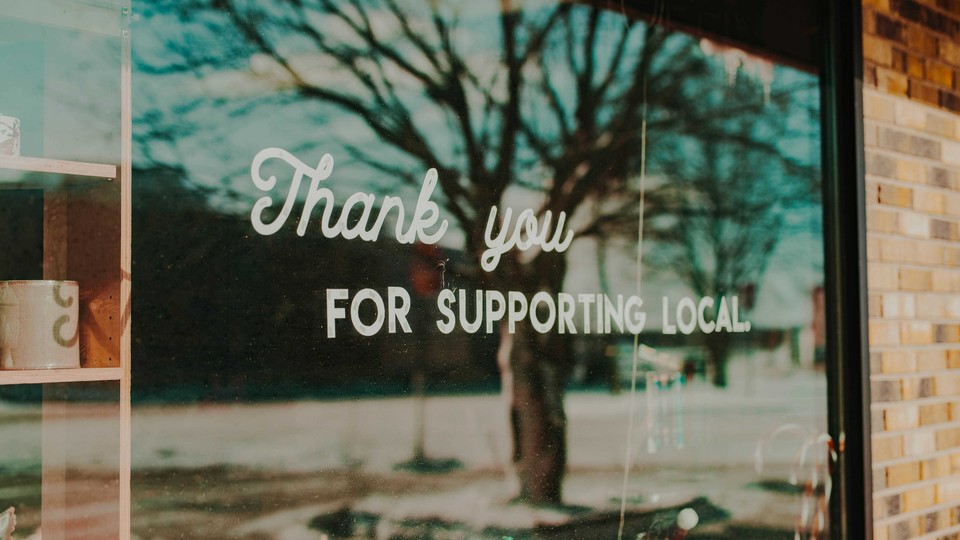
Language Police
What happens when we censor our own words — and the ideas they represent?
By Jennifer Latson
What happens when we censor our own words — and the ideas they represent?
You don’t have to ban words to get people to stop using them.
That became evident in December, when reports that White House officials had banned seven words at the Centers for Disease Control and Prevention (including “diversity” and “science-based”) turned out to be a red herring. The words had, in fact, been changed in official documents by the CDC’s own employees to eliminate triggers that might make their projects the target of budget cuts. By replacing politically-charged terms with euphemisms and abstractions, the public health workers revealed their best guesses — and worst fears — about what would rub the administration the wrong way.
It’s not the first time vague wording has made its way into a government document, but as an indicator of a larger trend, it’s troubling. Recent surveys show that self-censorship is on the rise in the U.S. — and that’s a hallmark of institutionalized fear, according to Corey Robin, a professor of political science at Brooklyn College and the author of Fear: The History of a Political Idea. We normally associate fear-driven self-censorship with totalitarianism, but it can crop up in democracies as well, Robin explains.
Brutal regimes, of course, plant the seeds of fear especially effectively. Robin quotes a psychoanalyst who lived through Uruguay’s military dictatorship in the 1970s, saying, “The process of self-censorship was incredibly insidious: It wasn’t just that you stopped talking about certain things with other people — you stopped thinking them yourself. Your internal dialogue just dried up.”
This is the danger of restricting speech: When people avoid discussing taboo topics, ideas themselves begin to disappear.
Jonathan Zimmerman, a professor of education and history at the University of Pennsylvania and the author of The Case for Contention: Teaching Controversial Issues in American Schools, says there’s a crucial difference between curbing derogatory language and avoiding controversial topics altogether.
These days, he points out, racial slurs have all but disappeared from college campuses — and it’s no loss that these words have become unofficially banned. But the fact that you rarely hear an open debate about affirmative action is problematic. He was surprised when a recent poll showed that 40 percent of professors oppose the policy — a stunning revelation because he’d never heard any of his colleagues voice that opinion.
“Obviously it’s because a lot of us are self-censoring,” he said. “And that can’t be good for the university or for affirmative action.”
Zimmerman’s concerns were further stoked last April, when Harvard University rescinded admissions offers to 10 students who had posted racist and obscene messages on social media.
“Their behavior was unacceptable, and there should have been consequences,” but revoking their admission was not the best response, Zimmerman argued in an op-ed for the Chronicle of Higher Education.
“My fear was that the penalty would not inhibit the stuff these kids were saying, which should be inhibited, but would inhibit other forms of open public discourse,” he said. “The best reply to bad speech is always more speech, not less.”
Surveys confirm that college students are more reluctant than ever to voice an unpopular opinion, but self-censorship isn’t just an issue on college campuses. The rest of us are increasingly wary, too. A 2017 report by The Cato Institute found that a majority of Americans — 58 percent — were afraid to share their political beliefs.
Why? It’s partly that political debate has become increasingly polarized. A 2014 study by the Pew Research Center concluded that “Republicans and Democrats are more divided along ideological lines – and partisan antipathy is deeper and more extensive – than at any point in the last two decades” — and that was before the 2016 election.
But it’s also true that frank public discussion has become increasingly fraught in the digital age, when social media posts open you up to virulent — and viral — public shaming. The consequences of online shaming are very real, as Jon Ronson writes in So You've Been Publicly Shamed: people have lost jobs, reputations and relationships over things they’ve said on social media. Ronson argues that these consequences are wildly disproportionate to the crime of offensive speech.
So what if you’re a Google employee who believes women are biologically ill-suited for roles in tech and leadership (partly because, as Google computer engineer James Damore wrote in a memo last summer, “women are on average more prone to anxiety”)? Should you be fired for voicing those beliefs?
Most Americans think not, according to the Cato Institute survey. And while the Google case was a reminder that the Constitution doesn’t specifically protect free speech in the workplace, there are arguments to be made for allowing employees to voice unpopular views.
For one thing, stifling free expression can also stifle innovation, according to research by Jing Zhou and Jennifer George, professors at Rice University’s Jones Graduate School of Business. They found, in a 2001 study, that disgruntled employees came up with some of the most creative solutions to workplace problems — but only “if they were reasonably confident that voicing their dissatisfaction could bring about needed change,” Zhou said.
“Leaders play a key role in boosting this confidence,” she added. “They should seek, encourage, and listen to employees’ input, even when (perhaps especially when) those ideas are different from the views the leaders hold.”
In other words, leaders can make it known that dissenting opinions are allowed by, well, allowing them — and by encouraging candid debate without penalizing unorthodox opinions.
Zimmerman practices this approach in the classroom. Although some of Donald Trump’s public comments make his blood boil, he doesn’t punish any of his students for agreeing with the president’s political ideas.
“What I say in my classes is that anyone can agree with Trump on anything — immigration, China, anything — you just can’t act like him,” he said. “You can’t vilify anyone who disagrees with you as beneath humanity. You can’t call women ‘pigs.’ You can say whatever you want to about Title IX and how it affects women, but you can’t call them pigs.”
“The most important thing we can do is to try to actually practice free speech, which is different from saying you support it,” says Zimmerman. “Otherwise it’s just an abstraction.”
Jennifer Latson is a staff writer and editor at Rice University’s Jones Graduate School of Business and the author of The Boy Who Loved Too Much.
Never Miss A Story


